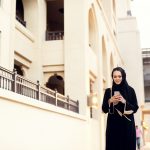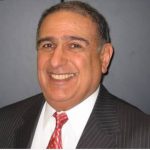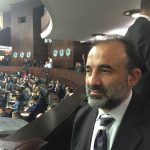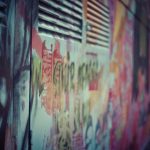Attacks on Muslims on the Rise: An Interview with Mariam Veiszadeh
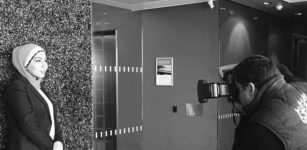
Four Muslim women were randomly punched in the face in an Islamophobic attack out the front of Sydney’s University of Technology (UTS) last Wednesday. A 39-year-old woman from Paraguay allegedly assaulted each woman – one after the other – in a “bias-motivated” incident.
One of the victims posted on her Facebook page that she’d been walking past the university when the woman approached her. “She didn’t speak to me, didn’t run away, she just punched me and walked off, as casually as if she had just come to say hello,” she wrote.
All four victims were wearing hijabs and were aged between 18 and 23. Their assailant appeared in Central Local Court on Thursday, charged with two counts of assault occasioning bodily harm and two counts of common assault.
Islamophobic attacks on the rise
Currently, Islamophobic attacks in Australia are becoming more frequent. A series of incidents occurred recently in the western Sydney suburb of Toongabbie, which forced a Muslim family to halt construction on their house.
After the family knocked down the fibro house on their property to make way for their new home, there was a neighbourhood backlash. Several severed pigs heads were left on the bonnet of the family’s car, and nasty threats were scrawled around the property.
A 2016 University of South Australia study found that one in ten people in Australia are “highly Islamophobic,” and harbour a fear of Muslim people. While a 2015 study found Sydney Muslims are three times more likely to experience discrimination than other Australians.
Inciting hatred
Anti-Muslim sentiment is often stoked by Australian politicians, as well as sensationalist media reporting.
One Nation’s Pauline Hanson warned in her maiden speech in the federal Senate last year that Australia is “in danger of being swamped by Muslims.” In reality, this is hardly the case. There were an estimated 476,000 Muslims in Australia at the last census, which is only 2.2 percent of the overall population.
Meanwhile, the anti-Islamic Q Society has been formed, which is made up of prominent members of the community with far-right political leanings. An offshoot of this group is Halal Choice. They’re running a campaign against halal certified foods.
Prejudiced politicians and movements like these are fuelling the flames of Islamophobia.
The register
On September 17 2014, the Islamophobia Register Australia was established in response to the rise in anti-Islamic hate crimes in this country. The register documents anti-Islamic incidents occurring in the community, as well as providing assistance to the victims of these crimes.
Mariam Veiszadeh is the president of the register. At present, they’re running a crowdfunding campaign to help publish an inaugural report on Islamophobic incidents in Australia. The report critically analyses the verified incidents recorded during the period 2014 to 2015.
Sydney Criminal Lawyers® spoke with Mariam Veiszadeh about the rise in anti-Muslim incidents in Australia, the trends in the attacks that have been documented and the importance of raising public awareness about them.
First, Mariam, last week, four Muslim women were assaulted out the front of UTS. This was a nasty attack on random passers-by.
You’ve been running the Islamophobia Register for some years now. Are you still shocked when you hear about another anti-Muslim incident occurring?
Yeah, I am. Obviously, I’m in a position where I see a lot more of these incidents on a regular basis. But certainly, what’s shocking is the continuous rise in both the frequency and the severity of the incidents.
This attack against four random, yet targeted, victims is still shocking in the sense that this one individual managed to attack four people before someone stopped her.
So absolutely, every time something happens there’s a shock factor associated with it. The concern is that it’s increasing in severity.
If we look at what’s happening overseas, I think Australia is still very lucky. We aren’t seeing the worst of it. It can always become much worse. In the States people have been murdered.
My concern is about how we can make sure that it doesn’t reach that extreme and that’s why we need to be working against it.
The register was established in September 2014. What actually sparked it off?
I was noticing, anecdotally, that there was a rise in what seemed like incidents of Islamophobia, even just amongst my friends. I felt that all of these various stories and experiences needed to be captured somewhere.
Because I wanted to see whether all of these things were purely coincidental with the timings, or whether they were connected, or a response to what mainstream society was seeing in the media.
And did you see a connection between these incidents?
Well, overtime certainly some of the trends that we’re starting to see is there is a correlation between incidents where Muslims and Islam have been thrown into the media spotlight, whatever the reason might be.
It could be a terrorist attack overseas, which is something that Australian Muslims would have nothing to do with. But somehow, because of the media coverage, we would see a rise in the incidents of Islamophobia.
Or it could be political rhetoric. Back in the days when Tony Abbott would make references to banning the so-called burqa in parliament, we saw a rise in Islamophobia.
So political rhetoric, media rhetoric, commentary around Muslims and Islam and acts of terrorism overseas seem to create a spike in incidents.
How does the register work? What does a person who’s been subjected to an Islamophobic incident need to do?
So just to make it clear, the register is not there to be divisive or to go after individual perpetrators, or anything like that.
The register’s purpose – similar to antisemitism registers that have been set up elsewhere – is very much to track these incidents. Whether it’s a crime or an incident of Islamophobic nature, where Muslims are targeted, or people who are perceived to be Muslims.
Someone wearing a Sikh turban, might actually receive Islamophobic verbal vitriol targeting them, because people think they’re Muslim.
Where that is the case, it’s a matter of asking either victims, witnesses or friends of the victim to come forward and submit a form to the register that captures the information relating to the incident: the date, the time and the whereabouts, the details of the victim and of the perpetrator if known, whether they went forward to police, whether the police did anything about it, and what the outcome was.
It’s about tracking those details. And obviously, depending on the nature of the incident, we will, where possible, provide assistance to the victim by way of referrals to victims’ counselling or assisting them to go to the police.
It’s not about taking action against the perpetrator or anything like that.
What we’re doing with that information is assessing and analysing the data.
In a couple of months, we will formally publish a report that looks at two years’ worth of data that we’ve collated, on a completely anonymous basis. So neither the victim’s or the perpetrator’s details are known. We’ve kept that completely confidential.
We’re only looking at it at a high level. The report will indicate what the trends are over that two year period, and what the findings were.
And you’re actually running a crowdfunding campaign in order to fund the publication.
That’s right.
So this report is going to be a first of its kind in Australia, is that correct?
There’s not been a report that tracks the actual incidents of Islamophobia. There have been general discussions and academic reports about Islamophobia.
In terms of having this kind of data – that’s been tracked over a period of time that can show verified incidents of Islamophobia that victims can account for, and the psychological impact that it’s left on them – that kind of a report, with actual data analysis, has not been done before.
So it’s a first of its kind in that sense.
In your time monitoring these incidents, who have you found has mainly been bearing the brunt of them?
One of the key findings of the report, which is being released in July, is that on average the victim tends to be an Australian Muslim woman and the perpetrator tends to be a male.
The trends that we’re seeing, that are alarming, is that a significant number of incidents take place in the presence of children. And then, there are also some incidents where the victim is pregnant at the time, making them even more vulnerable.
And what kind of incidents has the register been tracking?
The nature of the register is that it tracks several categories: verbal incidents, physical incidents and attacks on property, like vandalism or graffiti. So these types of incidents have been occurring.
In Australia, we’ve seen a rise in anti-Muslim groups like the Q Society and the anti-halal movement.
How do account for such blatant anti-Islamic movements forming like this in our society?
Our politicians, policy-makers and influential commentators play a role in helping create an environment in which anti-Muslim groups can actually flourish.
This is a trend that we are seeing overseas as well. We’re seeing a rise in anti-Muslim political movements, like One Nation, that are comparable to parties overseas. This obviously plays a role.
We’re not seeing any credible and responsible opposition to these groups. And there’s a very ripe environment in which groups like these can actually flourish, because they’re largely unchallenged.
And lastly, Mariam what you do think needs to happen in Australia to stop these hate crimes continuing? What’s going to changes the attitudes of people in the wider community?
The first part of that is about understanding how common this is. How frequently these incidents take place. The impact that it has on victims and the broader society. The role they play in almost making victims feel disenfranchised and wanting to step away from civic engagement.
Once you start to understand that, the solutions around how we can tackle this better can definitely be defined at that stage. That’s not for me to pre-empt. But rather my goal in starting the register was to say, “This is happening. It’s not an imaginary thing. And it’s happening much more that we think it is.”
The impact is enormous. Whether you’re the victim of Islamophobia or you hear about it happening to someone you know, or someone you don’t know, it still impacts you and there’s still a sense of fear.
The women talk about wanting to step away from civic engagement, not wanting to go to train stations or shopping centres, and not wanting to participate, work, or engage in civic society.
So if you think about that on a broad scale and what impact it has, and then you think more broadly around all the issues that are happening globally and within Australia, you’ve really got to think that letting Islamophobia go unchecked has far-reaching consequences and implications.
We need to take it more seriously – just as antisemitism was taken seriously globally, acknowledging that this is an issue akin to that – and make sure that we have policies in place to be able to tackle it.
Mariam thanks very much for taking the time out to have this chat with us today. And continued success with your work in turning the tide against Islamophobia.
It’s a pleasure.


